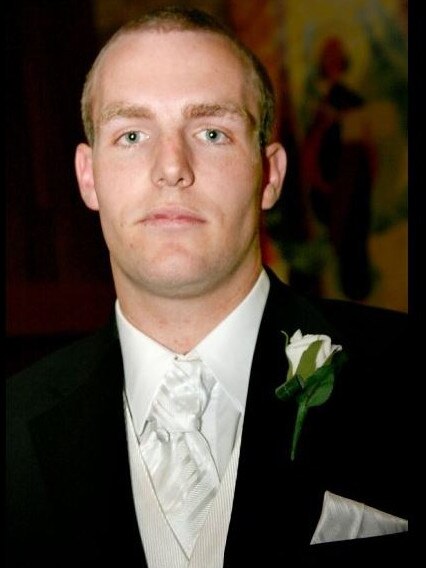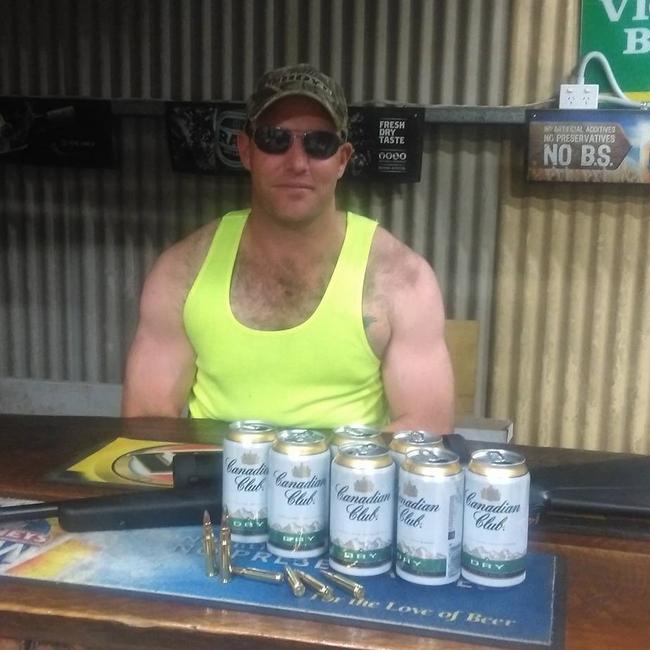Pig hunter who raped schoolgirl while wearing camouflage suit identified as Troy Johnson
The pig hunter who wore a camouflage ghillie suit in the terrifying rape of a young girl can be identified as Troy Johnson after The Daily Telegraph revealed a court was wrong to state his name was suppressed.
- ‘Camouflage child rapist’ pleads guilty to schoolgirl assault
- Pictures of schoolgirl’s horrific rape found on attacker’s phone
The pig hunter who wore a camouflage ghillie suit in the terrifying rape of a young girl can be identified as Troy Johnson after The Daily Telegraph revealed a court was wrong to state his name was suppressed.
It is the latest example of how judicial secrecy prevented a paedophile from being identified at the expense of open justice.
But Attorney-General Mark Speakman, who has ordered a review of the shocking increase in suppression orders across the state’s courts, yesterday backed the District Court judge.
The mix-up happened as Johnson, 33, a married father-of-three, appeared at Gosford District Court on Thursday and pleaded guilty to a total of 10 offences.

MORE NEWS
Baby boy dies after being left in hot car
Partner’s fears if Ben Barba dumped
Pet owners warned of dog food recall
They included the attack on the 12-year-old girl as she walked to school in May 2017 and other sex offences against an 11-year-old girl between August 2016 and January 2017.
The families of the girls wanted Johnson’s name to be published, Crown prosecutor Heidi Cantor told The Daily Telegraph outside court.
The NBN contractor, who hid beside a bush track because he knew it was a well-worn path for children going to school, had already been widely named after his arrest and after initial court appearances.

Ms Cantor sought to clarify the situation on Thursday and told Judge Tanya Bright in court: “There’s a lot of media interest … you can name him.”
But Judge Bright, a former Crown prosecutor, told the media from the bench: “You cannot name him, there is a statutory suppression order in place … to protect the privacy of victims.”
As a consequence, The Daily Telegraph did not name Johnson when it reported the guilty plea on Friday.
However the only suppression order on the case had been made in Gosford Local Court after Johnson’s arrest in 2017 and covered only the names of the two girls: “No publication of the identity of the victims, or any details that might identify them.”
Legal sources said no suppression order was needed to protect the names of the girls because the law does not allow the identification of victims of sexual assault nor juveniles.
“It was superfluous,” a legal expert said.
A spokeswoman for the District Court said on Thursday that: “There is a suppression order in respect of the names of the complainants AND of the accused. No names are to be published.”

She said a copy of the order containing the reasons for it could not be provided because “it contains the words that are suppressed.”
It was since confirmed by both Attorney-General Mark Speakman and the Office of the Director of Public Prosecutions that no order was ever made to prevent publication of Johnson’s name.
The District Court has since clarified the position and said no non-publication order was made on Johnson’s name.
“No suppression order was made in relation to … the accused,” a spokeswoman said.
The Daily Telegraph is campaigning for open justice after revealing suppression orders made by the courts had reached record levels soaring from 97 in 2011 to 185 last year. The campaign includes reasons for suppression orders should always be provided.
Mr Speakman, who has ordered a review by the NSW Law Reform Commission, said he had been told there were reasons not to identify Johnson.
“Justice should not only be done, but should also be seen to be done,” the attorney-general said.
“But there are occasions when it’s necessary to prohibit publication of information to protect victims, especially child victims and in this case I am informed that (this is one case).”
Johnson was remanded in custody to be sentenced on April 17.


